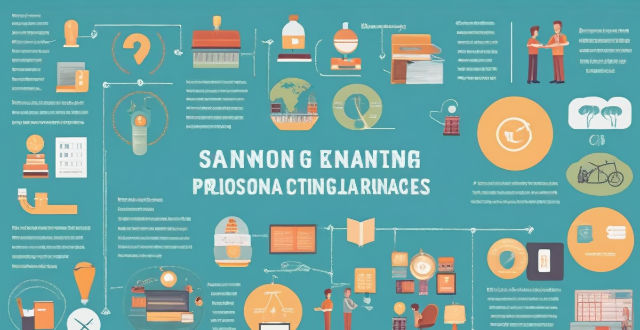When searching for online learning resources, it'sWhen searching for online learning resources, it's learning goals and then priorit it's crucial to first identify your learning goals and then prioritize credible sources like academic institutions and professional organizations. Evaluate content quality by checking author credentials and ensuring the information is up-to-date. Utilize reputable online learning platforms and join online communities for recommendations. Look for accredited courses and take advantage of trial periods to assess course quality before committing financially.

Finding Reliable Online Learning Resources for Your Subject
When it comes to online learning, the abundance of resources available can be both a blessing and a curse. With so many options at your fingertips, how do you ensure that you're accessing reliable and valuable content? Here are some tips to help you find trustworthy online learning resources for your subject:
1. Identify Your Learning Goals
Before you start searching, clearly define what you want to learn or achieve. This will help you narrow down your search to resources that align with your objectives.
- Define Your Subject Area: Are you looking to improve your skills in a specific area, or do you want to explore something new?
- Set Clear Objectives: What do you hope to accomplish by the end of your learning journey? Having clear goals will guide your search for resources.
2. Look for Credible Sources
Not all online resources are created equal. When searching for information, prioritize credible sources.
- Academic Institutions: Many universities now offer free online courses through platforms like Coursera or edX. These courses are often taught by professors from reputable institutions.
- Professional Organizations: Industry-specific organizations may provide training materials or webinars that are tailored to your field of interest.
- Government Websites: For subjects like health, safety, or law, government websites can provide reliable information.
3. Evaluate Content Quality
Once you've found potential resources, evaluate them based on their content quality.
- Author Credentials: Check who wrote the content. Are they experts in the field? Do they have any credentials or experience that make them reliable sources?
- Up-to-Date Information: Ensure that the information is current. Outdated resources may not reflect the latest advancements or changes in your field.
- Feedback and Reviews: If possible, look for feedback from other learners. Reviews can give you an idea of the effectiveness and reliability of the resource.
4. Utilize Online Learning Platforms
There are several online platforms dedicated to providing educational content. These platforms often vet their instructors and courses, offering a layer of reliability.
- Coursera, edX, Udemy: These platforms offer courses from universities and industry professionals. They also have user reviews which can help you gauge the course's effectiveness.
- Khan Academy, Codecademy: These are great for learning specific skills in areas like math, science, and coding.
5. Join Online Communities
Being part of an online community related to your subject can expose you to a wealth of resources shared by others who are also passionate about the topic.
- Reddit Threads: Subreddits dedicated to specific subjects can be goldmines for recommendations and discussions.
- Facebook Groups: Join groups related to your subject. Members often share resources and tips.
- Forums: Websites like Quora or specialized forums can provide insights and recommendations from experts and enthusiasts alike.
6. Check for Accreditation or Certification
If your goal is professional development, look for resources that offer certification upon completion. This not only validates the quality of the course but also adds value to your resume.
- Completion Certificates: Many online courses offer certificates of completion, which can be useful for showcasing your newly acquired skills.
- Accredited Courses: If possible, opt for courses that are accredited by recognized educational bodies. This ensures that the course meets certain educational standards.
7. Take Advantage of Trial Periods
Many online learning platforms offer free trials or previews of their courses. Take advantage of these to assess the quality before committing financially.
- Free Trials: Use free trials to get a feel for the course structure and content quality.
- Preview Lectures: Many platforms allow you to preview selected lectures for free, giving you an insight into the teaching style and depth of the content.
In conclusion, finding reliable online learning resources requires a combination of clarity in your learning goals, discernment in evaluating sources, and a willingness to explore various platforms and communities. By following these steps, you can maximize your learning potential and ensure that the time and effort you invest in online learning yield fruitful results.